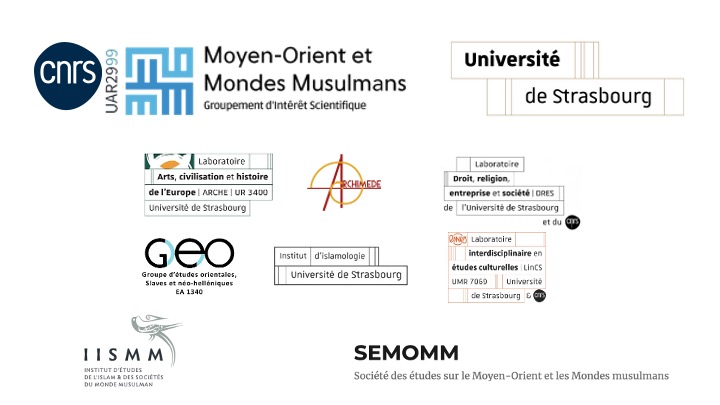RESPONSABLES :
Zeynep Bursa-Millet (Université Lyon II, LARHRA)
Dilek Sarmis (Unistra, GEO)
Renaud Soler (Unistra, GEO)
INTERVENANTS :
Uri Rosenberg (Université de Heidelberg) : « Si vous ne pouvez pas les battre, rejoignez-les » : Le regard du mouvement Millî Görüş sur le monde occidental à la fin de la guerre froide
“If You Can't Beat Them – Join Them”: The Millî Görüş movement's view of the Western world at the end of the Cold War
Antoinette Ferrand (IFAO du Caire) : La justification islamique du développement dans les organisations internationales pendant la guerre froide
The Islamic justification of development in international organisations during the Cold War
Gianfranco Bria (Université de Rome III) : La désislamisation de l'histoire albanaise sous le régime communiste
De-Islamisation of Albanian history during the communist regime
Louise-Marie de Busschère (Université Paul-Valéry Montpellier III, CRISES) : La guerre Iran-Irak : un conflit régional au croisement des enjeux globaux de la guerre froide et des rivalités islamiques
The Iran-Iraq War: A regional conflict at the crossroads of Cold War global issues and Islamic rivalries
Salomé Michel (Christian-Albrechts Universität zu Kiel) : Le régime pahlavi et l'islam : la réponse singulière d'un pays moyen-oriental aux enjeux de la guerre froide (1974-1979)
The Pahlavi Regime and Islam: The peculiar response of a Middle Eastern country to the Cold War challenges (1974-1979)
DISCUTANTE :
Nadia Marzouki (CNRS)



